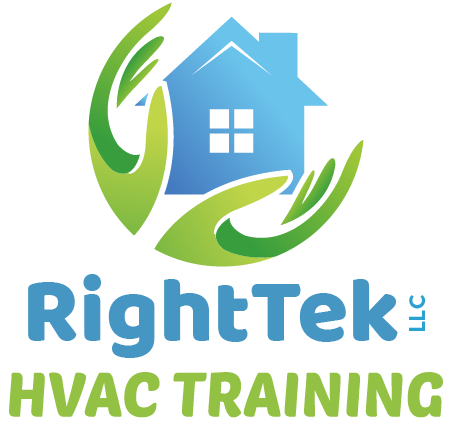Programs
Our National Partners
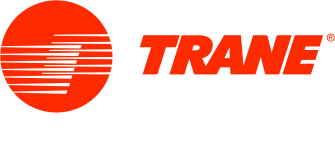
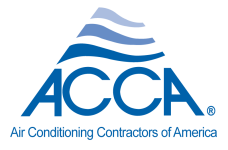

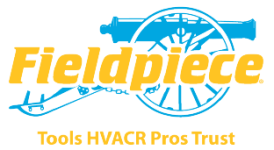

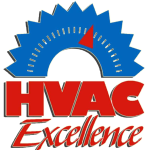


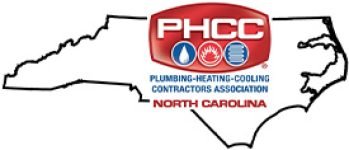
Flexible
In-Person & Online
A full and thorough hands-on and theory training in heating and cooling.
Affordable Cost
Pay Per Employee
We've worked with thousands of companies to provide affordable costs.
Multiple Areas
Serving the Contiguous United States
You provide the space, and we'll travel to you.
Program Details
Course summary
Four-part series conducted over four days online for beginner HVAC Contractors. This class introduces proper residential system design overview and installation procedures based on the “ACCA Standard 5 – Quality Installation” manual. Covers real-world applications for a complete and professional installation.
The format and class length varies and can be customized. Most choose full day in-person classes, but online classes are also available.
- Manual J Overview: Learn site survey methods and the dos and don'ts of load calculations.
- Manual S Overview & Implementation: Understand ACCA Manual S sizing guidelines with a practical example from a real house.
- Manual D Overview: Explore the requirements for flexible ducts and junction boxes.
- HVAC Quality Installations: Cover mechanical code highlights, duct installation and sealing techniques, new duct blasting requirements, and manufacturer’s key topics to reduce warranty concerns and callback issues.
- Design Introduction: System design using computer-aided software, including Wrightsoft demonstration of a simple Block Load Calculation.
Sign up through this link.
Course summary
The format and class length varies and can be customized. Most choose full day in-person classes, but online classes are also available.
- Air-flow measurements, restrictive duct issues, duct leakage requirements, proper blower settings.
- Basic zoning principles, installation techniques, operations (Honeywell Zoning/Duct System)
- Manual D "Best Practice" Overview: Design flaws to recognize and avoid.
Sign up through this link.
Heat Pump Fundamentals
Course summary
The format and class length varies and can be customized. Most choose full day in-person classes, but online classes are also available.
- Understanding the heat pump refrigeration cycle and components, including reversing valves, supplemental heat, defrost cycle, and controls.
- Learning about heat pump electrical components and sequence of operation, and overall heat pump heating side system performance.
- Exploring TXVs, flow controls, check valves, defrost control boards, and electric heat strips.
- Gaining practical, real-world tips and suggestions based on field experience.
Sign up through this link.
Course summary
The format and class length varies and can be customized. Most choose full day in-person classes, but online classes are also available.
- Understanding refrigerant safety considerations, complying to EPA regulations, and how to calculate and weigh the refrigerant charge.
- Learning to fine-tune the refrigerant level using superheat and subcooling methods.
- Covering the basic refrigeration cycle, system components, proper test instruments, and tool requirements.
- Exploring refrigerant piping installation, manufacturer’s charging charts, and proper indoor airflow.
- Gaining refrigerant charging tips, techniques, and best practices. Includes detailed methods for calculating and weighing refrigerant charges.
- Topics like proper test instruments, tool requirements, and common errors to avoid.
- Discussion of different types of metering devices and refrigerant charging tips.
Sign up through this link.
Course summary
The format and class length varies and can be customized. Most choose full day in-person classes, but online classes are also available.
- Understanding the sequence of operation of a modern gas furnace, accurate testing, and troubleshooting procedures.
- Learning about safety considerations, system operating characteristics, and gas heating system components.
- Exploring gas combustion, electrical components, and basic test procedures for condensing and non-condensing furnaces.
- Gaining practical tips and suggestions based on real-world field experience.
Sign up through this link.
Course summary
This course begins with the basics and builds upon that foundation to help students learn to apply their knowledge to real-world situations. Basic terminology and definitions are reviewed and explained, including system types such as Air Conditioners, Heat Pumps, Gas Furnaces, Evaporator Coils, Mini-splits, Package units, Dual Fuel and Split Systems, along with a discussion about efficiency ratings and related terminology.
Basic air-conditioning systems are then broken down into the major parts and components, which are all described and explained, including a discussion of R-22, R-410A and the new A2L refrigerants, including R454B. Actual equipment and parts are used in the classroom to help students truly learn to identify what each part and components is. Additionally, accessories such as humidifiers, air cleaners, UV lights, programmable thermostats, zoning systems and dehumidifiers are all explained, and their applications and potential benefits are discussed.
Actual real-world jobsite pictures are used extensively throughout this course to further drive knowledge and understanding of various systems, components and even customer complaints, such as clogged drain line issues, iced up/frozen coils, circuit breakers, drain pans filled/overflowing, dirty air filters and other common household problems. Jobsite pictures are also used to help students better understand the actual working conditions and environments that technicians and installers encounter daily while in the field.
At completion, students should better understand the basics of HVAC systems and how central heating and cooling systems work, helping to drive success through improved customer service!
The format and class length varies and can be customized. Most choose full day in-person classes, but online classes are also available.
- For employees (customer service, dispatchers, salespeople, office staff).
- HVAC terminology, components, and system types.
- Responding knowledgeably to HVAC complaints and customer inquiries.
- Breakdown of basic air-conditioning systems into major parts and components.
- Explanation of accessories like humidifiers, air cleaners, UV lights, programmable thermostats, and zoning systems.
- Use of actual equipment, parts, and jobsite pictures to enhance understanding.
- Real-world jobsite scenarios to explain common household problems.
Sign up through this link.
Course summary
The format and class length varies and can be customized. Most choose full day in-person classes, but online classes are also available.
- Understanding safety, the refrigeration cycle and components, superheat, subcooling, and proper airflow.
- Learning about electrical components and their operation, electrical component testing, and diagnostic procedures.
- Assessing overall system performance, including compressors, TXVs, metering devices, fan motors, contactors, and capacitors.
- Gaining knowledge on proper test procedures, multimeter use, and refrigerant cycle diagnostics.
- Receiving practical tips and suggestions based on real-world field experience.
Sign up through this link.
Courses Summary
Comprehensive training on the ACCA “step-by-step” Residential HVAC System Design process, leading to a 5-year ACCA Residential Design Certificate.
In-person, 3-day course.
- Manual J, Manual S, Manual D,
- ACCA Standard 5,
- real-world installation tips,
- load calculations,
- equipment sizing,
- duct design.
This extensive three-day course provides comprehensive training on ACCA's Residential HVAC System Design process. The course covers essential topics, including Manual J (load calculations), Manual S (equipment sizing), Manual D (duct design), and ACCA Standard 5 (quality installation). Students will engage in real-world procedures and site surveys to ensure accurate system design and installation. Upon successful completion, participants receive a 5-year ACCA Residential Design Certificate. This course is ideal for contractors, technicians, and other professionals seeking to enhance their HVAC system design expertise and earn continuing education credits.
Sign up through this link.
Course summary
Students will meet in-person for 8 hours. The eight-hour class includes the North Carolina General Contractor licensing board’s 2-hour mandatory course, plus 6 hours of elective CE credit focused on residential heating and air conditioning systems.
- Understanding design and installation aspects driven by Residential and Mechanical Codes.
- Learning proper sizing of Air-Conditioning Systems to mitigate risks of mold, mildew, and discomfort.
Please contact us.
R-32 and R-454B Flammable Refrigerant Course
Courses Summary
Learn how to safely install and service residential and light commercial systems using R-32 and R-454B mildly flammable refrigerants.
The format and class length varies and can be customized. Most choose full day in-person classes, but online classes are also available.
- Introduction to A2L refrigerants,
- safe handling techniques,
- new tools and equipment requirements,
- installation and code compliance,
- service and repair procedures,
- refrigerant charging/adjustments,
- and diagnostic scenarios.
This one-day course focuses on safely and correctly installing and servicing systems that use R-32 and R-454B mildly flammable refrigerants. The curriculum, based on OEM factory standards and recognized safety guidelines, covers the transition to A2L refrigerants, safe handling practices, necessary tools, installation requirements, and service procedures. Students will also engage in refrigerant charging and diagnostic exercises to build confidence in the field. The course includes a proctored ESCO “A2L Mildly Flammable Refrigerant Certification Exam.”
Gas Furnace Installation Course (1-Day)
Course summary
Gain foundational knowledge to install residential and light commercial gas furnace systems safely and correctly.
The format and class length varies and can be customized. Most choose full day in-person classes, but online classes are also available.
- Furnace location,
- clearances,
- ductwork,
- gas pipe sizing,
- exhaust vent installation,
- combustion air requirements,
- condensate drain piping,
- electrical and control wiring,
- and start-up procedures.
This course teaches the essential knowledge required to install gas furnace systems in residential and light commercial settings, with a focus on safety and compliance with manufacturer guidelines and local codes. The course covers all aspects of installation, including furnace placement, ductwork, gas pipe and vent installation, electrical and control wiring, and start-up procedures. Students will learn practical tips to avoid installation errors, ensuring a professional and compliant installation every time.
Courses Summary
Master the fundamental techniques for installing residential and light commercial heat pump and A/C systems.
The format and class length varies and can be customized. Most choose full day in-person classes, but online classes are also available.
- System location, ductwork,
- refrigerant piping,
- high-voltage and low-voltage wiring,
- condensate drain piping,
- thermostat configuration,
- airflow setup,
- and refrigerant charging.
This one-day course provides comprehensive training on the installation of residential and light commercial heat pump and A/C systems. It covers proper system placement, ductwork, refrigerant piping, electrical wiring, and condensate management. Additionally, the course details start-up procedures, including thermostat configuration, airflow setup, and refrigerant charging techniques. Practical tips drawn from real-world experience are shared to help technicians avoid common installation issues and ensure a successful, code-compliant installation.
Course summary
Learn the critical aspects of low-voltage control wiring for HVAC systems.
The format and class length varies and can be customized. Most choose full day in-person classes, but online classes are also available.
- Wiring components for gas furnaces, heat pumps, and A/C systems,
- thermostat configuration,
- low-voltage system setups,
- and wiring diagrams.
This course covers the essentials of low-voltage control wiring for HVAC systems, including gas furnaces, heat pumps, and A/C units. Students will learn how to correctly wire new installations and system replacements, configure thermostats, and understand wiring diagrams. The course provides hands-on training in low-voltage wiring setups, including safety switches, to ensure proper system operation.
Real-World Wrightsoft System Design Course: Part 1 (2-Day)
Courses Summary
Learn to design residential HVAC systems using Wrightsoft software and industry standards.
In-person, 2-day course.
- Load calculations,
- equipment selection, duct design,
- Wrightsoft software operation,
- and system design considerations.
This two-day course, led by an industry expert, teaches students how to design residential heating and cooling systems using Wrightsoft software, following ACCA Manual J, S, and D standards. Participants will gain practical skills in load calculations, equipment selection, and duct design, with a focus on real-world applications. The course includes hands-on examples of both “block load” and “room-by-room” calculations, ensuring students can design efficient and accurate HVAC systems for residential settings. Students are required to bring a laptop with the Wrightsoft software installed.
Sign up through this link.
Real-World Wrightsoft System Design Course: Part 2 (1-Day)
Course summary
Advance your HVAC system design skills with complex load calculations and duct system design using Wrightsoft software.
The format and class length varies and can be customized. Most choose full day in-person classes, but online classes are also available.
- Advanced load calculations,
- complex system design,
- duct system layout,
- zone dampers,
- Wrightsoft software operation.
This advanced course builds on the skills learned in Part 1, focusing on complex HVAC system designs using Wrightsoft software. Students will perform advanced load calculations for unique residential settings, including townhouses, condominiums, and split-level homes. The course also covers duct system layout and design, including the use of zone dampers. By the end of the course, students should be capable of designing advanced residential heating and cooling systems that meet industry standards.
Sign up through this link.
Courses Summary
Master the skills needed to service and troubleshoot residential and light commercial gas furnace systems.
The format and class length varies and can be customized. Most choose full day in-person classes, but online classes are also available.
- Sequence of operation,
- safety considerations,
- system components,
- combustion,
- electrical components,
- test procedures,
- and troubleshooting.
This course provides foundational knowledge for servicing and troubleshooting gas furnace systems. Emphasis is placed on understanding the sequence of operation, safety measures, system components, and proper testing and troubleshooting techniques. Both condensing and non-condensing furnaces are covered, along with electrical components and combustion considerations. Students will learn how to accurately diagnose issues to reduce customer callbacks and ensure efficient operation.
Course summary
Learn how to troubleshoot and diagnose issues in residential and light commercial A/C systems.
The format and class length varies and can be customized. Most choose full day in-person classes, but online classes are also available.
- Safety,
- modes of operation,
- refrigeration cycle,
- superheat and subcooling,
- airflow diagnostics,
- electrical components,
- and multimeter use.
This course teaches the foundational knowledge necessary to troubleshoot and diagnose A/C system issues. Key topics include safety, operation modes, refrigeration cycle, and components like superheat and subcooling, as well as airflow diagnostics and electrical component testing. Students will also learn how to use a multimeter and perform refrigerant-side diagnostics to assess overall system performance accurately. Practical insights based on real-world experience are shared to help technicians diagnose issues effectively.
Air-Balancing & Zoning Systems (1-Day)
Courses Summary
Optimize HVAC system performance with air balancing and zoning techniques.
The format and class length varies and can be customized. Most choose full day in-person classes, but online classes are also available.
- Air-flow measurements,
- duct issues,
- blower settings,
- restrictive filters,
- basic zoning principles,
- and installation techniques.
This course provides training on air balancing and zoning techniques to optimize HVAC system performance. Topics include air-flow measurements, addressing restrictive duct issues, proper blower settings, and zoning system installation. Hands-on demonstrations using live units and duct systems (where available) are included to reinforce learning. The course aims to equip students with the knowledge to ensure peak system performance and efficient operation.
Course summary
Learn the ACCA Standard 5 quality installation procedures for residential and light commercial HVAC systems
The format and class length varies and can be customized. Most choose full day in-person classes, but online classes are also available.
- System design,
- installation procedures,
- duct installation,
- start-up procedures,
- testing,
- and customer service.
This course focuses on the ACCA Standard 5 for quality HVAC installations. It covers detailed step-by-step procedures for proper system design, installation, and code compliance, including duct installation and sealing techniques. The course also includes start-up and testing procedures to ensure system performance and customer satisfaction. Practical tips from real-world experience are shared to help reduce callbacks and failed inspections, ensuring a complete and professional installation every time.
Sign up through this link.
Courses Summary
Prepare for the EPA 608 Certification, required for anyone working with refrigerants.
The format and class length varies and can be customized. Most choose full day in-person classes, but online classes are also available.
- Refrigerant handling,
- small appliances,
- high-pressure systems,
- low-pressure systems,
- EPA regulations.
This course is designed to prepare students for the EPA 608 Refrigerant Certification examination, which is mandatory for anyone working with refrigerants. The course covers the requirements for handling refrigerants, including small appliances, high-pressure systems, and low-pressure systems. Students will gain a thorough understanding of EPA regulations and refrigerant safety practices, ensuring they are fully prepared for the certification exam. The course includes a proctored EPA test administered during the class.
Course summary
Learn the essential techniques for accurate refrigerant charging in residential and light commercial HVAC systems.
The format and class length varies and can be customized. Most choose full day in-person classes, but online classes are also available.
- Refrigerant safety,
- EPA compliance,
- refrigerant weighing and charging,
- superheat and subcooling methods,
- refrigeration cycle,
- system components,
- and common errors to avoid.
This course focuses on the principles needed to accurately charge refrigerants in HVAC systems. Students will learn about refrigerant safety, EPA regulations, and the correct methods for weighing and adjusting refrigerant charges using superheat and subcooling techniques. The course also covers the refrigeration cycle, system components, proper tool usage, and common pitfalls to avoid, ensuring a clean and trouble-free system. Practical tips are provided to enhance the technician's confidence and accuracy in the field.
Courses Summary
This 6-hour continuing education course is tailored for North Carolina code enforcement officials, focusing on the safe and proper installation and inspection of A2L (mildly flammable) refrigerant systems in residential and commercial applications. Participants will gain foundational knowledge of A2L refrigerants, their properties, new equipment safety standards, proper installation techniques, and code compliance/inspection procedures.
The format and class length varies and can be customized. Most choose full day in-person classes, but online classes are also available.
- Overview of the industry transition to A2L refrigerants
- Safety and control requirements for new equipment
- Installation and inspection techniques for residential and commercial systems
- Nuances of current North Carolina codes and pathways to compliance
- Insights into the 2024 N.C. Mechanical Code and its implications
- Key inspection points for new installations and replacement scenarios
This course is approved for 6 hours of NC COQB continuing education credit.
Quick Links
Looking for these?
contact US
Fill out the form below – someone will be in touch as soon as possible.
Change Lives With Us
Potential students, trainers, partners, press and community members – we’d love to hear from you!
Class Locations
Trade Warriors HVAC Bootcamp - Fort Bragg (NC) & Fort Hood (TX)
For all other specialized HVAC classes for HVAC professionals, we can come to your place of business.
Telephone
Anthony (919) 475-2779
Bill (410) 596-1078
Office Hours
Monday - Friday
8am - 5pm
Quick Links
Trainings
Class Locations
Trade Warriors HVAC Bootcamp - Fort Bragg (NC) & Fort Hood (TX)
For all other specialized HVAC classes for HVAC professionals, we can come to your place of business.
Days Open
Monday - Friday
8 AM - 5 PM
